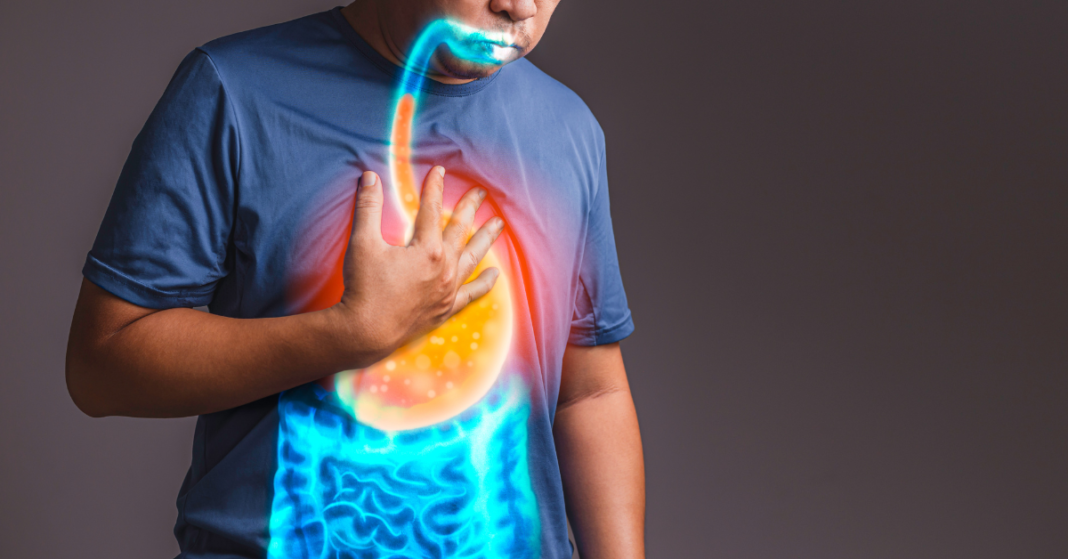Have you ever felt a burning sensation right under your chest? Well that is acid reflux. Gastroesophageal reflux disease or commonly called GERD, is a chronic condition where stomach acid irritates the lining of the esophagus. Heartburn, is that burning sensation in your chest, that is a direct symptom, but GERD can develop in different ways. If you experience frequent heartburn or other GERD symptoms, it is important to debunk some common myths and get a clear understanding of the condition. Before going to debunk the myths of GERD, let us understand the basics of GERD.
What is meant by GERD?
The human stomach is an organ that is only one-way which means food can only be ingested. But in the case of GERD, the acids in the stomach travel upwards into the esophagus causing an acid reflux. As the acid travels back to the esophagus it can irritate the lining, causing a burning sensation.
At least once in a time people experience heartburn or GERD due to several reasons.
What are the symptoms of GERD?
There are few common symptoms of GERD, that help identify the condition,
- Food backwash: The food you eat can be backwashed into the throat noticing a weird acidic taste.
- Burning feeling: The acid from the stomach when constantly comes in touch with the lining of the esophagus can burn it making you experience a severe burning sensation.
- Nausea: When the acid is backwashed it can leave a weird taste leading to loss of appetite and nausea.
In people with GERD, the symptoms can worsen when they lie down, have a heart meal, or even bend over. Reach out to the acid reflux treatment in Coimbatore if you are facing GERD symptoms to seek timely treatment.
The common myths about GERD:
Myth 1: GERD is just a heartburn
This is a big misconception. While heartburn is a common symptom, it’s not the only one. GERD can cause a variety of issues, that include:
- Regurgitation
- Chest pain
- Difficulty swallowing
- Chronic cough
- Dental problems
- Sleep issues
If you experience any of these symptoms, along with heartburn, then it is important to consult a gastrointestinal doctor for diagnosis.
Myth 2: Milk calms heartburn
Milk might provide temporary heartburn relief due to its coating effect. However, the fat content in the milk can actually increase stomach acid production, worsening heartburn in the long run.
Myth 3: Spicy food always triggers GERD:
Spicy food can be a trigger for some people with GERD, but it is not completely true. Identifying personal triggers is the key. Common culprits besides spicy food include:
- Fatty foods: High-fat meals take longer to digest, keeping the stomach valve open for longer and allowing acid to reflux.
- Acidic foods: Citrus fruits, tomatoes, and tomato-based products can irritate the esophagus.
- Alcohol and caffeine: Both can irritate the esophagus and worsen GERD symptoms.
Foods that might help relax the acid reflux:
- Chocolate: Chocolate relaxes the lower esophageal sphincter (LES), the muscle that keeps the stomach acid down.
- Peppermint: While often used for stomach upset, peppermint can relax the LES in some individuals.
Make sure to keep an eye on the triggers to avoid them in your diet.
Myth 4: Skipping meals helps GERD:
An empty stomach might seem like a good idea to avoid acid production, but it actually has the opposite effect. When you don’t eat regularly, your stomach produces less acid for digestion. This can lead to rebound effects, with an increase in the acid production when you do finally eat, potentially worsening the symptoms. Choose to eat smaller meals more often during the day
Myth 5: Over the counter medications are the solutions
There are many people who seek over the counter medications for GERD. Although they are known to provide quick relief from the GERD symptoms, they are not a long-term solution especially when they are recommended by the specialists. These medications are known to cause side effects when used in the long run.
Myth 6: GERD is not a serious condition
While GERD can be managed effectively, left untreated, it can lead to complications like:
- Esophageal ulcers: Open sores in the lining of the esophagus caused by chronic acid exposure.
- Strictures: Narrowing of the esophagus, making swallowing a difficult task.
- Barrett’s esophagus: A precancerous condition where the lining of the lower esophagus changes in response to the acid reflux.
Early diagnosis and timely treatment are important to prevent these complications from arising.
Myth 7: Lifestyle changes don’t make a difference
Lifestyle modifications can significantly improve GERD symptoms. These include:
Maintaining a healthy weight: Excess weight puts pressure on the abdomen, pushing stomach acid upwards.
Quitting smoking: Smoking relaxes the LES and irritates the esophagus.
Eating smaller meals: This reduces the volume of acid in your mouth.
Avoid tight-fitted clothes: Tight clothing around the waist can put pressure on the abdomen.
Elevating the head of your bed: Position yourself up on pillows to prevent acid reflux during nights.
Managing stress: Stress can worsen GERD symptoms. Relaxation techniques like yoga or medication can help.
Important Takeaway:
Unfortunately, most people ignore GERD symptoms assuming it to be indigestion and continue to take over the counter medications to calm their symptoms. GERD requires timely treatment to overcome the symptoms and also to restore the quality of life. Book an appointment with the best gastro hospital in Coimbatore to seek immediate treatment for GERD.


